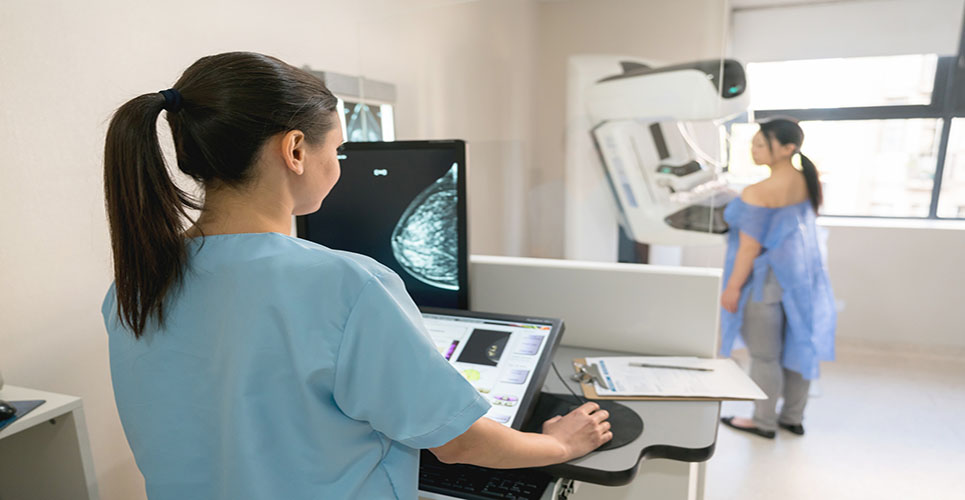MSD has announced the launch of Ontruzant®▼, (trastuzumab), a biosimilar referencing Herceptin® (trastuzumab/TRZ), for the treatment of early breast cancer, metastatic breast cancer and metastatic gastric cancer.
This was the first trastuzumab biosimilar to receive regulatory approval in Europe and is the first to launch in the UK.1
MSD has announced the launch of Ontruzant®▼, (trastuzumab), a biosimilar referencing Herceptin® (trastuzumab/TRZ), for the treatment of early breast cancer, metastatic breast cancer and metastatic gastric cancer.
This was the first trastuzumab biosimilar to receive regulatory approval in Europe and is the first to launch in the UK.1
Biosimilar trastuzumab represents the first product approved in the UK under a global biosimilars development and commercialisation agreement between MSD and Samsung Bioepis Co Ltd.
The European Medicines Agency (EMA) requires biosimilars to show they are highly similar to the reference medicine in terms of structure, biological activity and efficacy, safety and immunogenicity profile.2 Ontruzant (trastuzumab biosimilar (SB3)) is a monoclonal antibody and has been shown to have similar safety and efficacy as its reference product Herceptin (TRZ) in early breast cancer, with breast pathologic complete response rates (bpCR) being 51.7% and 42.0% with SB3 and TRZ respectively. The adjusted ratio of bpCR was 1.259 (95%CI, 1.085 to 1.460), which was within the predefined equivalence margins. The adjusted difference was 10.70% (95% CI, 4.13% to 17.26%), with the lower limit contained within and the upper limit outside the equivalence margin. The overall response rates were 96.3% and 91.2% with SB3 and TRZ.3
Dr Mark Verrill, Head of the Department of Medical Oncology at the Newcastle upon Tyne Hospitals NHS Foundation Trust, and the deputy lead clinician for breast cancer in the North of England Cancer Network said, “This is good news for so many cancer patients and the NHS. The launch of biosimilar trastuzumab provides a high-quality treatment alternative for patients, while offering significant potential savings for the NHS. The biggest category of medicines in oncology is monoclonal antibodies and the introduction of biosimilars such as trastuzumab could provide a substantial cost saving.”
Denise Blake, Senior Lead Clinical Pharmacist at Newcastle Hospitals, explains, “The introduction of biosimilar trastuzumab provides an opportunity for the NHS to realise substantial financial savings without compromising patient care. Close collaboration between oncologists, pharmacists and nursing staff is required to ensure a seamless introduction into routine clinical practice.”
“As a company committed to inventing new treatment options for both common and neglected types of cancer, MSD is also pleased to be offering the NHS a biosimilar medicine in an established area of care. Biosimilar trastuzumab marks a significant milestone for both MSD and the oncology community, providing the UK’s first biosimilar trastuzumab, based on our collaboration with Samsung Bioepis,” explains Louise Houson, UK Managing Director, MSD.
Regulatory approval was based on a Phase III study that compared SB3 with reference TRZ in patients with human epidermal growth factor receptor HER-2 positive early breast cancer in the neoadjuvant setting.
The study showed the total pathologic complete response rates were 45.8% and 35.8% and the overall response rates were 96.3% and 91.2% with SB3 and TRZ, respectively. Eight hundred patients were included in the per-protocol set (SB3, n = 402; TRZ, n = 398). The bpCR rates were 51.7% and 42.0% with SB3 and TRZ, respectively. The adjusted ratio of bpCR was 1.259 (95%CI, 1.085 to 1.460), which was within the predefined equivalence margins. The adjusted difference was 10.70% (95% CI, 4.13% to 17.26%), with the lower limit contained within pre-specified equivalence margins and the upper limit of the confidence interval slightly exceeding the pre-specified equivalence margins (-13%, 13%).
Overall, 96.6% and 95.2% of patients experienced one or more adverse event, 10.5% and 10.7% had a serious adverse event, and 0.7% and 0.0% had antidrug antibodies (up to cycle 9) with SB3 and TRZ, respectively.3
References
- EMC. (2018). Ontruzant 150 mg powder for concentrate for solution for infusion. [online] Available at: https://www.medicines.org.uk/emc/product/9047 [Accessed 7 Mar. 2018].
- EMA. Biosimilar in the EU. Available at: http://www.ema.europa.eu/docs/en_GB/document_library/Leaflet/2017/05/WC500226648.pdf. [Accessed 22 Feb. 2018].
- Pivot, X., Bondarenko, I., Nowecki, Z. et al. (2018). Phase III, Randomized, Double-Blind Study Comparing the Efficacy, Safety, and Immunogenicity of SB3 (Trastuzumab Biosimilar) and Reference Trastuzumab in Patients Treated With Neoadjuvant Therapy for Human Epidermal Growth Factor Receptor 2–Positive Early Breast Cancer. Published at JCO.org on January 28, 2018.

